Dubai, which is clearly the front runner in the United Arab Emirates, fascinates the world because of the unmatched billionaire lifestyle, abundance of futuristic ideas, and endless entertainment options it provides. Dubai has significantly evolved within the luxury market over the last few years as local brands are becoming more globally popular. Such brands strategies the opulence of Dubai and they rank among the choice few in the world.

source:Marcopolis
Here Below The Top 10 Companies In Dubai
| Company | Sector | Headquarters |
| The Emirates Group | Aviation | Garhoud, Dubai |
| DP World | Logistics | Dubai |
| Etisalat | Telecommunications | Abu Dhabi |
| TAQA Group | Energy | Abu Dhabi |
| Emirates NBD Bank | Financial Services | Dubai |
| First Abu Dhabi Bank (FAB) | Financial Services | Abu Dhabi |
| Majid Al Futtaim Holdings | Retail/Hospitality | Dubai |
| Emirates Global Aluminium | Metals | Abu Dhabi |
| Abu Dhabi National Oil Co. | Oil & Gas | Abu Dhabi |
| Nakheel Properties | Real Estate | Dubai |
The Emirates Group
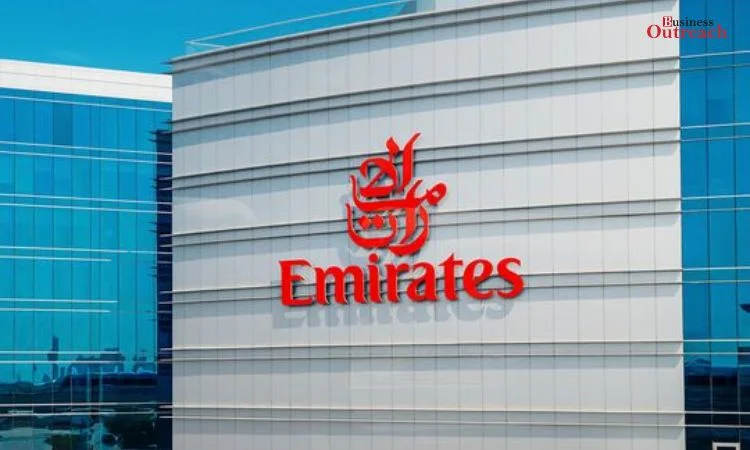
The Emirates Group headquartered in Garhoud, Dubai, United Arab Emirates, is an important state-owned globally operating international aviation holding company. Composed of an aviation services entity that retains the world’s ground handling services in a total of 126 airports, and Emirates Airline, the biggest carrier in the Middle East, the Emirates Group is always at the peak of global aviation industry. As Emirates Airlines operates over 150 destinations in six continents and enjoys a fleet of more than 250 wide body aircraft, the company is considered a giant in the global market.
Reinforced by the Government of Dubai represented by Investment Corporation of Dubai and falling under Dubai Inc. , the Emirates Group, is a driving force of the economic scenery of the region. The Company’s impressive revenues of around US$28. The Emirates Group with a revenue of $38 billion and a workforce of over 105,000 people across its numerous business units and associated entities ranks among the leading multinational employers in the Middle East.
The headquarters of the group is based in Emirates Group of Companies building in Al-Garhoud, Dubai which represents its commitment to excellence and quest for novelty. Known to be directly linked to the Dubai International Airport through a tunnel, the structure relives this company’s commitment to strategic connectivity and operational efficiency. The location of the head office was the Airline Centre that was not far from the clock tower roundabout in Dubai in the past.
Sheikh Saeed bin Maktoum al Maktoum provides the starting point for the Emirates Group with the era of open seas, skies, and trade which he envisioned to promote the nation’s growth. Since its origin in 1959, the Dubai National Air Transport Association (DNATA) had a great influence on shaping the aviation sector, turning it into a multi-faceted organization with three different business segments.
Emirates Airline came to be in March 1985, with invaluable assistance from Dubai’s royal house and a pledge to function on its own without government aid. Led by Maurice Flanagan and Sheikh Ahmed bin Saeed Al Maktoum, the airline found itself rapidly growing with its first flight taking off from Dubai to Karachi in October 1985. Despite the first gulf war and regional economic downturns, Emirates Group continued to follow its growth path thanks to the planned expansions into the new markets as well as its strong customer-centered service.
DP World
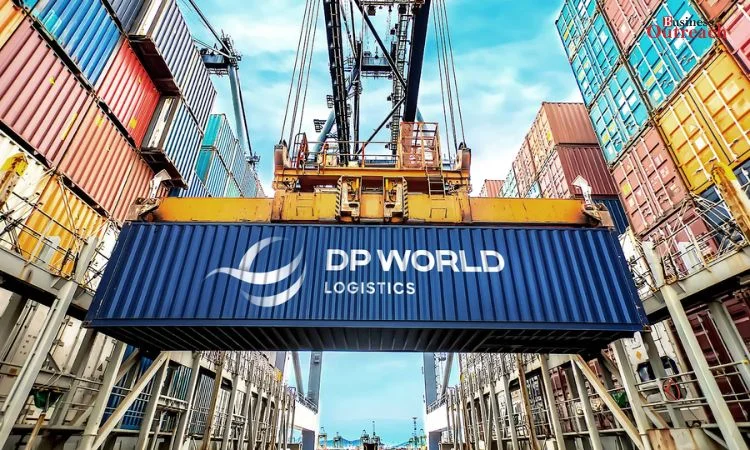
Source: cargo Insights
DP World is a prominent Emirati logistics multinational corporation (MNC) based in Dubai, United Arab Emirates. The company’s niche is in cargo logistics, port terminal operations, maritime services, and the establishment of free trade zones to which it has fully committed since the ports merged in 2005.
Handling a massive amount of 70 million TEU (twenty-foot container units) per year, which is approximately 70,000 vessel movements, DP World commands considerable market share in global trade. According to an estimate, the organization has a share of about 10% in the overall traffic of containers worldwide. Hacking through this global network of 82 sea and inland terminals across more than 40 countries, the company definitely occupies a key position in the global logistics map.
Following its origin in 1999, Dubai Ports International (DPI) began its operations by co-development of South Container Terminal (SCT) in Jeddah, Saudi Arabia, under a local partnership scheme. Shortly, DPI footprints began to occupy the port areas of Djibouti, Vizag and Constanța by 2003. As DPI continued its global growth on a broad scale by acquiring CSX World Terminals in January 2005, the next logical step was a merger with the Dubai Ports Authority later that year which resulted in the formation of DP World in September 2005.
The company’s growth strategy was planned out with some strategic acquisitions, particularly the P&O deal, the world’s fourth-largest ports operator, which was purchased in March 2006 for £3. By 2050, the world population is expected to reach 9 billion. Meanwhile, DP World remains an important participant in the global shipping industry.
e&(Etisalat and)
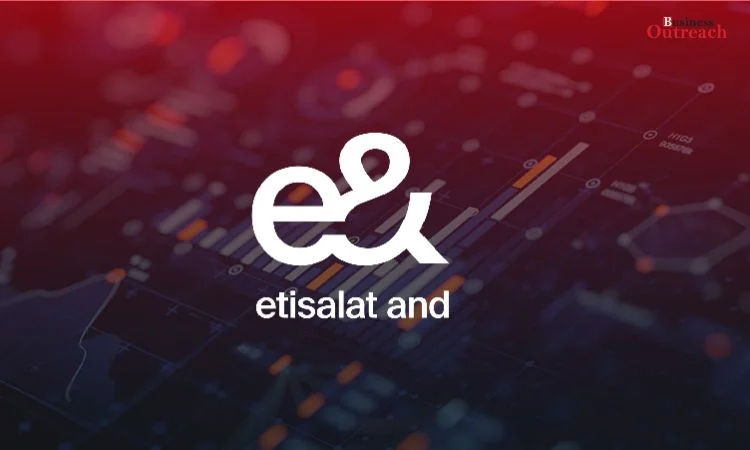
Source: Telecom Review
Emirates Telecommunications Group Company Public Joint Stock Company (PTJSC), commonly known as Etisalat, is a telecommunications company fully owned by the government of the United Arab Emirates. Ranked 18th amongst the top mobile network operators worldwide by subscriber base, Etisalat remains an important player in the telecommunication industry.
As of December 31, 2021, the value of consolidated Etisalat revenue stood at AED 53. by generation of 3 billion and distribution of AED 11. 1 billion. At present, the company’s market capitalization amounts to AED 329 billion and it can be seen as a solid financial state. Moreover, in May 2023, the company showed a revenue of AED 13 billion for the first quarter.
As Etisalat is the main Internet hub for the Middle East (AS8966), it allows the telecommunications operators in the region to have a connecting facility. It is the principal operator of international voice traffic that ranks as the 12th top voice carrier worldwide in the Middle East and Africa. Through 510 roaming agreements in 186 different countries, Etisalat provides a wide range of services including BlackBerry, 3G, GPRS and Voice Roaming. It has Points of Presence (PoP) in key international cities such as New York, London, Amsterdam, Frankfurt, Paris, and Singapore.
TAQA Group
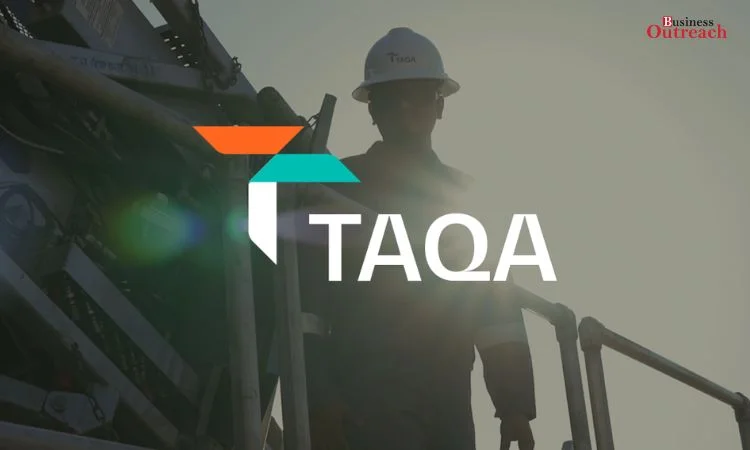
source:www.tq.com
The Abu Dhabi National Energy Company, PJSC (TAQA), is the government-managed holding energy firm headquartered in Abu Dhabi, United Arab Emirated, and has wide-ranging influence in the region’s economy. In line with the economic vision of Abu Dhabi, TAQA works in 11 countries from 4 continents.
ADWEA (Abu Dhabi Water and Electricity Authority) was established in the year 1998, which was a government initiative aimed at privatization of the water and electricity sector. In June 2005, ADWEA took the initiative to pass the provisions of an Emiri Decree, and TAQA was incorporated as a public joint-stock company with a majority share (51%) belonging to ADWEA.
TAQA’s developmental years were characterized by a fast growth during the reign of its debuting CEO, Mr. Peter E. Barker-Homek, who was in charge of major acquisitions in Africa and North America. Significant deals include Northrock Resources Ltd. , Pioneer Natural Resources Canada Inc. , and PrimeWest Energy Trust in Canada, and several North Sea assets from Shell U. K. limited and Esso Exploration and Production (UK) limited.
Emirates NBD Bank

Source: Dubai Media Office
Emirates NBD Bank PJSC is a leading financial institution in Dubai with government ownership where it is the largest banking group within the Middle East concerning their asset portfolio.
Sheikh Rashid bin Saeed Al Maktoum, Dubai’s visionary leader, established NBD Bank on June 19, 1963, which was the first national bank to start its operations in Dubai. Then, on the 6th of March 2007, NBD and EBI (EBI) merged to form Emirates NBD. Its landmark debut on the Dubai Financial Market (DFM) happened on October 16, 2007, with the public listing.
Emirates NBD strengthened its core business activity via the acquisition of Dubai Bank on December 1, 2012, which led to further expansion and maximization of control in the banking sector.
First Abu Dhabi Bank (FAB)
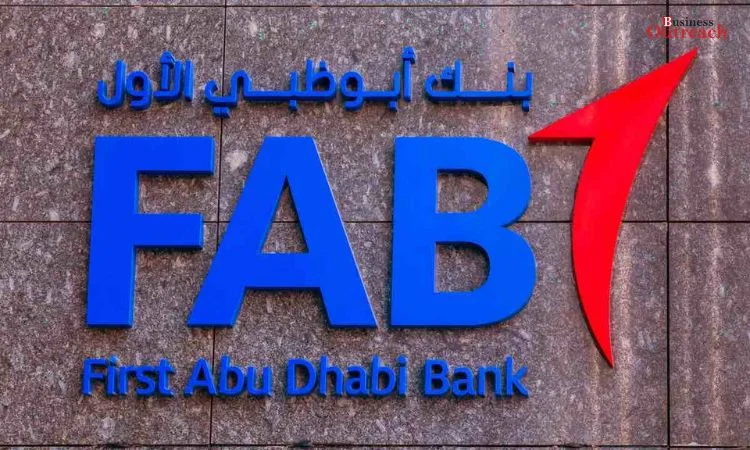
FAB, is the biggest financial institution in the UAE. The merging of First Gulf Bank (FGB) and National Bank of Abu Dhabi (NBAD) led to the formation of FAB which offers a wide range of financial solutions, products and services through its Corporate and Investment Banking and Personal Banking Divisions.
With its headquarters in Abu Dhabi city at the Khalifa Business Park, the bank extends its operations to various continents globally, namely APAC, Europe, Americas and EAMEA.
However, the inception of FAB occurred during July 3, 2016, when the FGB and NBD boards met and decided to merge the two banks. The merger was the overwhelming preference of both shareholders on December 7, 2016.
In January 2021, Hana Al Rostamani was appointed as the group CEO, marking a new chapter of leadership for the business.
Majid Al Futtaim Holdings (MAF Holding)
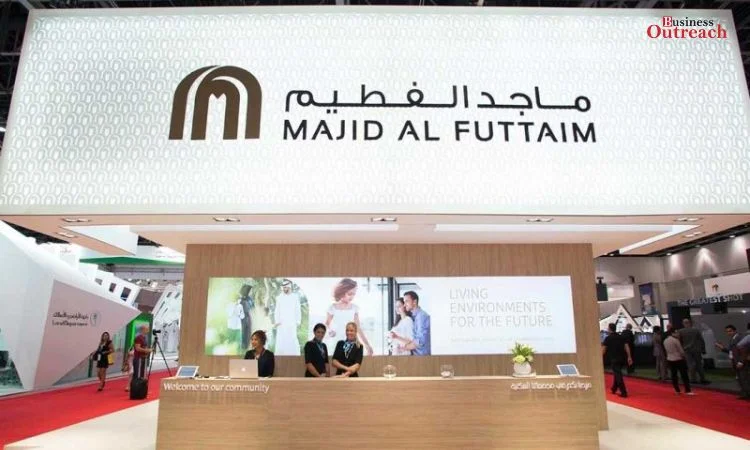
MAF Holding is a major holding company based in Dubai, having a diversified portfolio which spans shopping malls, retail stores and hotels across the MENA region.
Founded in 1992, the family-owned conglomerate group Majid Al Futtaim has grown to be famous for owning and operating Dubai’s iconic Mall of the Emirates in addition to being the regional franchise of the renowned French hypermarket chain, Carrefour, operating in the Middle East, North Africa, and Central Asia.
In 2016, MAF Holding declared significant revenues of $10 millions. Profits of $760 million were made by the film, which was watched by 6 billion people.
History:
MAF Holding was born in 1992 when Majid Al Futtaim diversified his business and headed for success in a new venture, distinct from his brother Abdulla’s retail business. This initiative indicates the birth of a separate corporate body that would be dealing with real estate & property management projects. A formal disengagement of the two entities became finalized in 2000 when Sheikh Mohammed bin Rashid Al Maktoum, the ruler of Dubai, tasked himself with dividing the assets, liabilities, and activities, between the siblings through arbitration.
For the gratitude, the group’s founder Majid Al Futtaim was awarded with the Royal Commendation Order by the Sultan of Oman, Qaboos bin Said Al Said, in December, 2018.
Moreover, Majid Al Futtaim died in December 2021, in Dubai.
In September 2022, Forbes showcased the company’s importance by including it in the list of Middle East’s Top 100 Arab Family Businesses in which it took 6th rank.
Emirates Global Aluminium (EGA)
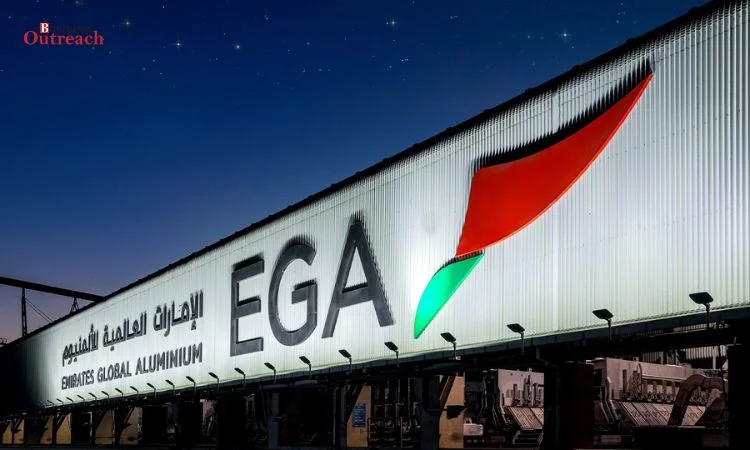
Source: Construction Week Online
Emirates Global Aluminium (EGA) is a major industry player with a variety of enterprises in bauxite/alumina and primary aluminium smelters. EGA is 80% owned by the respectable Mubadala Investment Company of Abu Dhabi and 20% by the Investment Corporation of Dubai.
Initially, in 1975, by the foundation of DUBAL (Dubai Aluminium), which was the very first aluminium production company in UAE, the roots of EGA (Emirates Global Aluminium) can be traced back. Having commenced its operations at Jebel Ali, the company went through a well-coordinated four-year preparation phase prior to the production start. In 2007 the Emirates Aluminium (EMAL) emerged as the most important player in the industry.
And 2013 was marking a groundbreaking moment as DUBAL and EMAL merged to develop the mighty Emirates Global Aluminium (EGA) with its leading position in the industry. Through the utilization of new technology, EGA channels excess heat from gas and oil-fired power plants into a desalination process of brackish water, which is eco-friendly, and a testament to a continued outlook towards technological development and environmental responsibility.
ADNOC
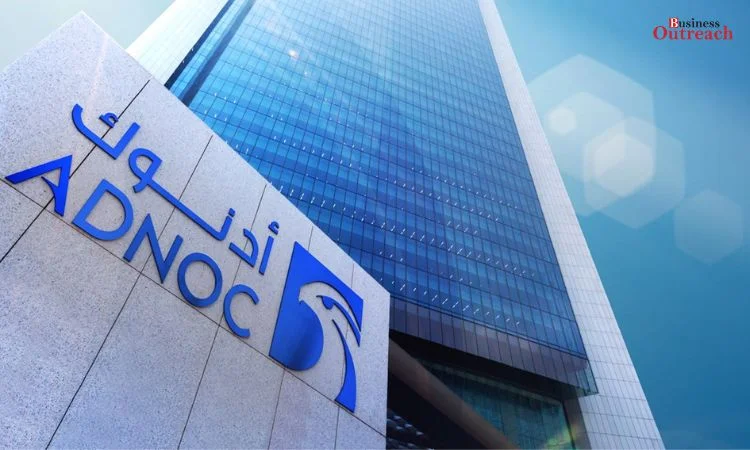
Source: Energy Connect
The Abu Dhabi National Oil Company (ADNOC), is the national oil firm of the UAE. To be mentioned as the 12th largest oil company in terms of production, ADNOC wields great power and authority within the world of oil. As of 2021, its oil production capacity reached the level of 4 million barrels per day (bpd) and further plans are in progress to raise it to 5 million bpd by 2030. In particular, ADNOC is the biggest state oil company of the United Arab Emirates.
Throughout the ADNOC history of operation, the company has a great measure of stability in production levels and the output has been indexed at 2. Demand would rise up to 5million bpd during the 1990s and up to 2million b/d now in 2020. 9 million bpd in 2008. In spite of the limitations in evaluating the financial performance of ADNOC due to its perceived lack of transparency, it has, nonetheless, generated the reputation of operational efficiency and adept management.
Nakheel Properties
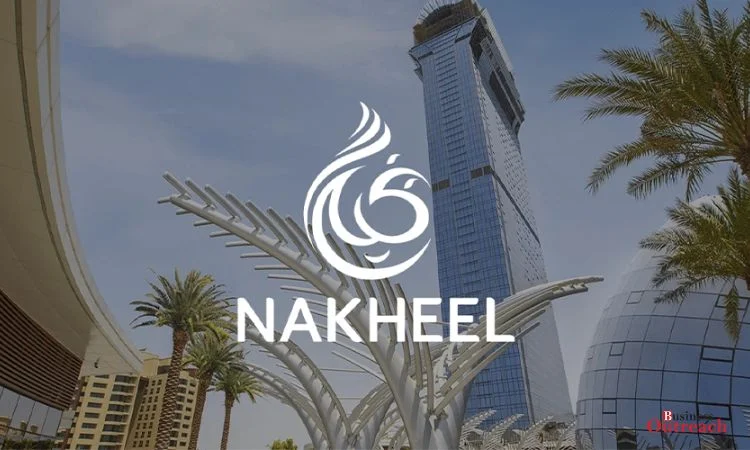
Source: Imtilak Real Estate
Nakheel Properties is an established real estate development company in Dubai, United Arab Emirates whose name has been translated to ‘nakhīl’ (Palm tree) in Arabic. Being listed as Nakheel PJSC (Private Joint Stock Company), it first started out as a company under Dubai World which is a state-owned enterprise, acting privately.
In 2009 to 2010, the company (Nakheel) was rather important in solving the Dubai debt issues. As being the second largest developer after Emaar properties, Nakheel has managed to acquire a significant position in the real estate market.
Historical Background:
Nakheel was established in 2003, as a subsidiary of Dubai World, which is in charge of running operations of both the state-owned company and the private corporation. It is worth mentioning that the issuance of sukuk (Islamic bonds) in 2009 had brought in legal issues and had drawn scholastic attention. These bonds, which were the largest Sukuk in the world at the moment, depicted the financial operations at Nakheel.
In 2010, as Sultan Ahmed bin Sulayem was relieved of the duty of chairman of Dubai World, Nakheel also started to return capital to the creditors. Correspondingly, in 2011 Nakheel began the biggest debt restructuring in history worth 59 billion dirhams ($16 billion). The transfer of the legal ownership of Nakheel to the Government of Dubai had been arranged as a part of the company’s financial restructuring as mentioned by the board of directors of Dubai World in July 2011.
In 2013, the deputy prime minister Sheikh Mohammed bin Rashid sanctioned US$898 million in funding for Nakheel which later led to the unveiling of various projects on the Palm Jumeirah. In 2017, the company had notable financial success, recording a net profit worth $1 billion at the end of the 9th month. However, the Palm Gateway project awarding of a major contract in 2017 by Nakheel was a clear indicator of expansion plans.
Conclusion
In conclusion, Dubai as a global force is led by its top companies that shape various sectors, given that they impact industries internationally. The Emirates Group, which is basically Emirates Airlines, represents the control of Dubai in the aviation sector and DP world has a leading position in global trade and logistics. Etisalat is a telecom giant in the region and therefore it is a major pillar of connectivity across the Middle East and beyond.
TAQA Group operates in the energy sector; Nakheel Properties in the real estate sector; Emirates NBD Bank and FAB in financial services. Majid Al Futtaim Holdings is a shining example of Dubai’s excellence in the field of retail and hospitality. On the other hand, Emirates Global Aluminium and ADNOC show the diversity of economy in the city. In a nutshell, these companies represent the Dubai approach to innovation, economic diversification and global leading role and as a result, it is a destination for opportunity and success at the worldwide level.















